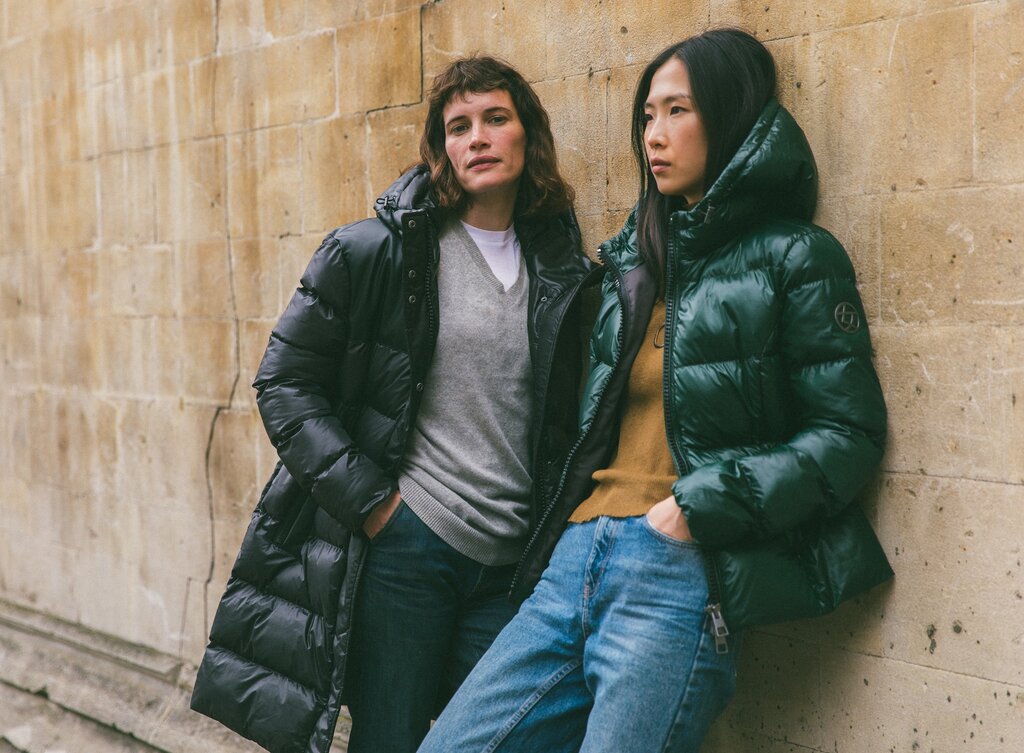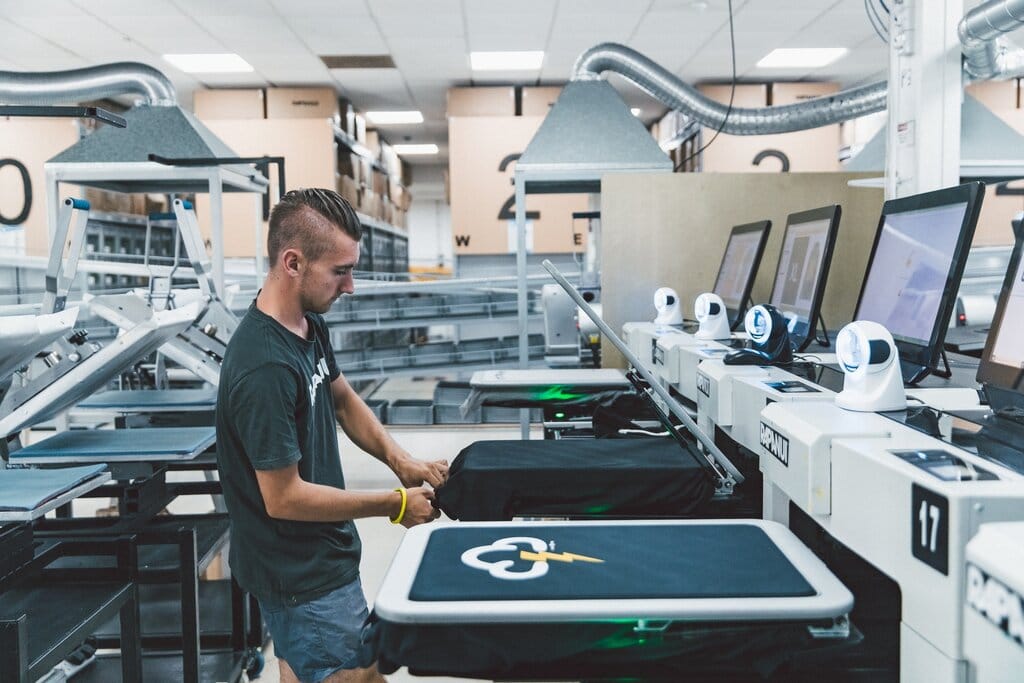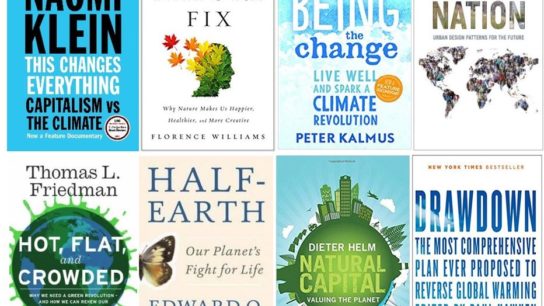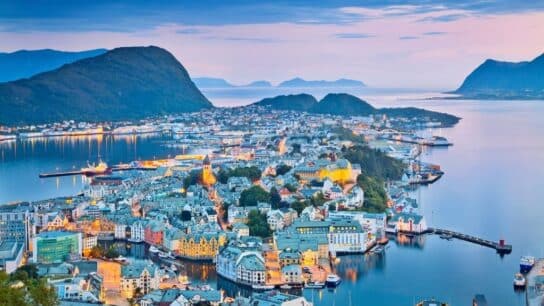The fashion industry at large has become one of the biggest sources of environmental pollution and greenhouse gas emissions to emerge in recent years, accounting for 10% of global carbon emissions and nearly 20% of global wastewater. Should it remain at this current trajectory, we could produce up to 134 million tonnes textile waste a year by 2030. Many popular high street brands including companies in the UK such as Primark, New Look and Topshop are all culprits of fast fashion business models, in which brands rapidly produce cheap and often low quality clothing that are cycled in and out of market to meet new trends. But there are growing numbers of sustainable companies that are leading the way to reduce fashion’s global carbon footprint. From brands that make clothes in a renewable powered factory to businesses that only designs clothing made with upcycled and organic materials, these are some of the top UK sustainable fashion brands that are worth supporting.
—
Top UK Sustainable Fashion Brands
Stella McCartney
The British fashion designer has been a lifelong vegetarian and a vocal supporter of animal rights. Since launching her eponymous fashion house, McCartney has not only been consistent in not incorporating any leather or fur in her clothing and bag designs, but also pioneered into bringing vegan and plastic-free alternative materials – including tops and trousers made with mycelium mushrooms – to the mainstream market. The fashion company is also transparent with its impacts, where detailed environmental reporting can be found accessible on the website, as well its green commitments and sustainable timeline.
ELV Denim
As revealed in the groundbreaking documentary Riverblue, fabrics such as denim require significant amounts of dyes, which pollute local and global waterways, as well as water needed to grow the cotton – about 1,800 gallons of water is used to grow enough cotton for a pair of jeans. To combat the massive environmental impact, this UK fashion brand takes unwanted jeans from vintage warehouses around the country destined for landfill and turns them into modern sophisticated pieces. Everything is designed and produced in East London to keep the company’s carbon footprint low, while ensuring they only use about 7 litres of water to wash the post-consumer denim waste.
BEEN London
This East London-based zero-waste brand transforms and upcycles textile and plastic waste into fashionable clothing items and accessories. Shoppers can discover a wide range of leather products made from discarded leather trimmings, vegan leather items made with pineapple leaves and apple peels, as well as a variety of products made from rescued virgin plastic materials including plastic bottles. What’s more, to further reduce the company’s carbon footprint, BEEN plants a tree for every bag purchased. Since July 2020, the company has already replanted one acre of trees in the Amazon rainforest in Peru, making it one of the leading UK sustainable fashion brands.

Culthread
With the mission to create clothing that is both functional and long lasting, Culthread is a ‘slow fashion’ brand that offers collections of jackets and accessories made from high quality recycled and vegan materials. It is also committed to refusing to use any animal products including natural fur in any of its products. For its puffer jackets and bags, this UK fashion label uses 100% recycled polyester fibre as opposed to traditional down fur, where a single coat is made up of fibre from 10 post-consumer plastic bottles. This women-led company also ensures fair labour practises and wages for its workers in Vietnam.
People Tree
One of earliest UK sustainable fashion brands, People Tree is a pioneering company that uses eco-friendly materials and addresses labour risks by adopting the Fairtrade International’s Small Producers Organisations Code of Conduct. All clothes across the brand’s collections feature organic cotton and responsible wool, dyed with low-impact dyes that are also free from harmful chemicals, and are made using traditional artisan skills such as hand weaving, hand knitting, hand embroidery and hand block printing. People Tree was also the first fashion company to be awarded the World Fair Trade Organisation product label, ensuring that their clothing is both sustainably sourced and affordable.
You might also like: 7 Fast Fashion Companies Responsible for Environmental Pollution
Noctu
For sustainable nightwear, loungewear, and bed linens, look no further than Noctu. This UK brand offers minimalist products made locally from 100% certified organic cotton materials. Its GOTS (Global Organic Textiles Standard) certification means the cotton is completely pesticide free and that no harmful chemicals were used anywhere throughout the production process from knitting to dyeing, thereby avoiding water, soil and environmental damage. Noctu also proudly supports workers rights and unions, ensures fair wages and good working conditions for its workers, and zero child labour. Additionally, with every purchase, shoppers help save 10 square metres of endangered wildlife through the company’s partnership with the World Land Trust.

Rapanaui
This surf-inspired eco-fashion brand makes all its clothes in a wind- and solar-powered factory in the Isle of Wight, where every product is printed in real time to prevent overproduction waste. Using only natural materials is also a key company ethos, where every design from surf towels and socks to hoodies is made from recovered materials – Rapanaui encourages shoppers to send back their clothing after being worn out with postage all paid for – and without plastic, creating a circular supply chain. You won’t find plastic in its packaging either. For any shoppers that send products back to be remanufactured, Rapanaui rewards them with a coupon to save money on their next purchase.
Rozenbroek
Designed and handmade in a solar-powered factory in Yorkshire, every clothing item from Rozenbroek is made with only the highest quality of organic materials that are sourced primarily from Europe – though the brand tries to sourced as much locally as possible. Textile off-cuts from factories form significant parts of the brand’s collections as well, and are repurposed into tote bags, scrunchies, and face masks. Unlike most fast fashion brands that overproduced resulting in massive amounts of clothing waste (not to mention the waste energy and water), Rozenbroek’s products are only made in small quantities or made to order. Woven items all come with a 10-year repair or recycle guarantee, while it goes without saying that all packaging are either made with recycled materials, recyclable, compostable or biodegradable.
Mother of Pearl
Founded by British designer Amy Powney, this sustainable luxury womenswear and accessories brand has made a conscious effort to use as much natural fibres as possible across its collections as clothing made with synthetic fibres release methane, a potent greenhouse gas as they break down in landfills, as well as microplastic leaching. This includes organic cotton, wool and botanic fibres, all of which comes with a GOTS certification ensuring workers are paid a fair living wage. Mother of Pearl also refuses to use any wool products where sheep has been mulesed, and the small percentage of leather that they use for their accessories are by-products of the meat industry, which otherwise would have gone to waste.
Wright Le Chapelain
Co-founders and co-designers (and partners in life) Imogen Wright and Vincent Le Chapelain launched their fashion brand in 2017 with the goal to offer unique upcycled and responsibly-made clothes. The duo develop and manufacture their collections within the UK to reduce our carbon footprint while source suitings from British heritage mills, organic cotton from Italy, and upcycled garments from local charities. Since 2020, Wright Le Chapelain has partnered with Crisis, a London-based charity working to end homelessness, where the charity provides discarded garments to be upcycled and a percentage of each sale goes directly back to the charity.


















